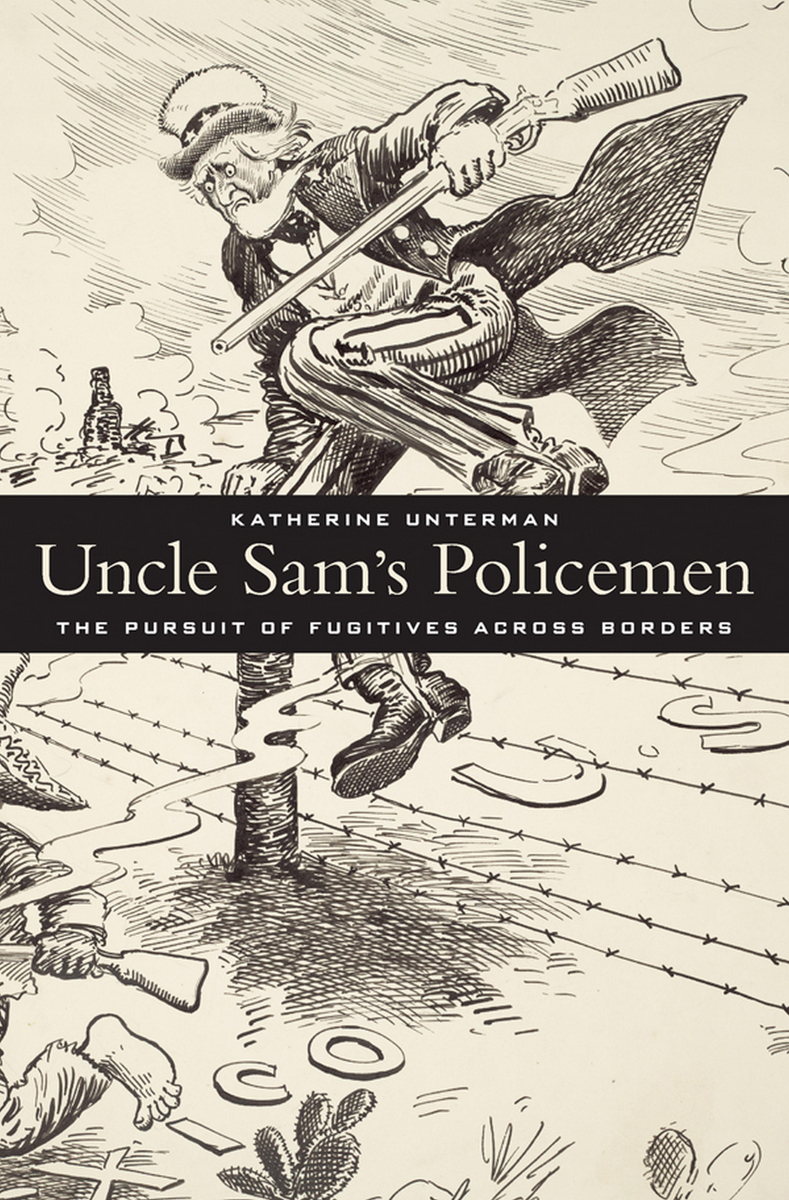Another new one from HUP:
Uncle Sam’s Policemen: The Pursuit of Fugitives across Borders (Oct. 2015), by
Katherine Unterman (Texas A&M University). From the Press:

Extraordinary rendition—the practice
of abducting criminal suspects in locations around the world—has been
criticized as an unprecedented expansion of U.S. police powers. But
America’s aggressive pursuit of fugitives beyond its borders far
predates the global war on terror.
Uncle Sam’s Policemen
investigates the history of international manhunts, arguing that the
extension of U.S. law enforcement into foreign jurisdictions at the turn
of the twentieth century forms an important chapter in the story of
American empire.
In the late 1800s, expanding networks of railroads and steamships
made it increasingly easy for criminals to evade justice. Recognizing
that domestic law and order depended on projecting legal authority
abroad, President Theodore Roosevelt declared in 1903 that the United
States would “leave no place on earth” for criminals to hide. Charting
the rapid growth of extradition law, Katherine Unterman shows
that the United States had fifty-eight treaties with thirty-six nations
by 1900—more than any other country. American diplomats put pressure on
countries that served as extradition havens, particularly in Latin
America, and cloak-and-dagger tactics such as the kidnapping of
fugitives by Pinkerton detectives were fair game—a practice explicitly
condoned by the U.S. Supreme Court.
The most wanted fugitives of this period were not anarchists and
political agitators but embezzlers and defrauders—criminals who
threatened the emerging corporate capitalist order. By the early
twentieth century, the long arm of American law stretched around the
globe, creating an informal empire that complemented both military and
economic might.
From the advance reviews:
“Uncle Sam’s Policemen uncovers the hidden history of America’s rise to power. Unterman
shows how battles a century ago over policing, rendition, and
deportation transformed the way that Americans saw themselves in the
world. Her book stands at the forefront of the most exciting work in
U.S. legal history and the history of U.S. foreign relations.”—Christopher Capozzola
“A compelling, briskly written, and
important account of how the history of cross-border policing enabled
contemporary rendition and expanded American global power.”—Mary L. Dudziak
More information is available
here.
Extraordinary rendition—the practice of abducting criminal suspects in locations around the world—has been criticized as an unprecedented expansion of U.S. police powers. But America’s aggressive pursuit of fugitives beyond its borders far predates the global war on terror. Uncle Sam’s Policemen investigates the history of international manhunts, arguing that the extension of U.S. law enforcement into foreign jurisdictions at the turn of the twentieth century forms an important chapter in the story of American empire.